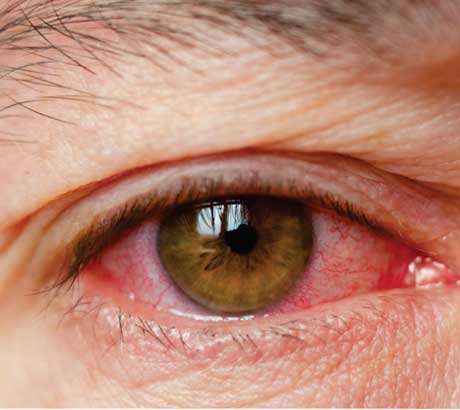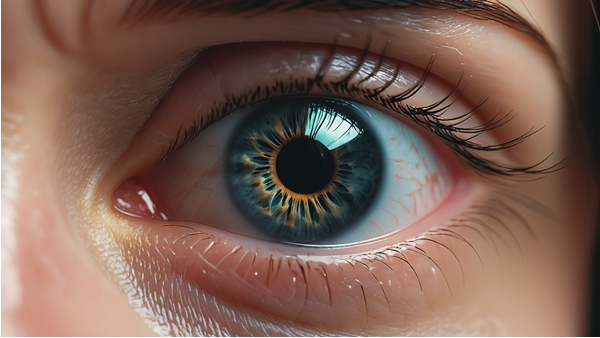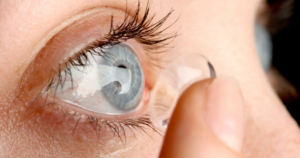Conjunctivitis, commonly referred to as “pink eye,” is a pesky and highly contagious eye condition that can really cramp your style. Nobody wants to deal with the discomfort, itchiness, and unsightly appearance that often comes along with this irritating infection. That’s why it’s so important to take preventative measures to keep conjunctivitis at bay.
If you’re looking for the best eye doctors in Fort Lauderdale to help you tackle conjunctivitis, or if you need effective dry eye treatment near Fort Lauderdale, Dr. Eric Radzwill and his team have got you covered. But before you even need to make that appointment, let’s dive into some expert tips for avoiding pink eye in the first place.
What Causes the Dreaded Pink Eye?
Understanding what causes conjunctivitis, the first step in learning is how to prevent it. There are a few different culprits that can lead to this unpleasant eye condition:
- Viruses: Viral conjunctivitis is highly contagious and often accompanies common colds, flu, or other respiratory infections. It’s basically the eye version of the sniffles.
- Bacteria: When bacteria like Staphylococcus or Streptococcus get into your eye, they can cause bacterial conjunctivitis. This type tends to have a thicker, gunkier discharge.
- Allergies: If you’ve got allergies and get exposed to triggers like pollen, dust, or pet dander, allergic conjunctivitis can kick in, making your eyes itchy, watery, and generally unhappy.
- Irritants: From smoke to chemical splashes, irritants in the air or environment can also lead to good old-fashioned irritant conjunctivitis.
No matter the cause, dealing with conjunctivitis is a real nuisance. Let’s look at how to keep this pesky condition away.
Your Personal Pink Eye Prevention Plan
Practicing good hygiene habits is key for preventing the spread of all types of conjunctivitis. Make sure to frequently wash your hands with soap and water, especially before touching your eyes or face. Avoid sharing personal items like towels or washcloths with others. And disinfect surfaces like countertops and doorknobs regularly to zap any lingering germs.
If you do end up with viral or bacterial pink eye, don’t skip out on that crucial medical treatment. Your eye doctor can provide antibiotic eye drops or other medications to knock out the infection and prevent it from spreading further.
For the allergy-prone folks out there, managing those environmental triggers is essential for keeping allergic conjunctivitis under control. Do your best to limit exposure to pollen, dust, pet dander, or any other known allergens. Using high-quality air filters in your home and car can also help remove irritants from the air you breathe.
If itchy, dry, eyes are an ongoing issue, that can increase your chances of developing conjunctivitis in the first place. Treating any underlying dry eye problems with medical guidance from an expert like Dr. Radzwill can bolster your defenses against pink eye.

Why You Shouldn’t Ignore That Pink Eye
While conjunctivitis is rarely a vision-threatening emergency, ignoring it isn’t doing you any favors either. Certain types of conjunctivitis can potentially lead to complications like corneal inflammation or vision problems if left untreated for too long. Your eyes are precious, after all.
Plus, if you’ve got a contagious case of viral or bacterial conjunctivitis, you’re putting others at risk of catching it too if you don’t get it under control. Your co-workers, friends, and family members will probably appreciate you taking proactive steps to keep your germy pink eye at bay.
The bottom line? Preventing conjunctivitis just takes some simple precautions and a willingness to seek proper medical treatment when needed. Stay on top of your hand-washing game, watch out for allergy triggers, and have a good eye doctor like Dr. Eric Radzwill on the speed dial just in case.
Don’t let the dreaded pink eye cramp your style and put your daily life on pause. With a bit of care and the right preventative measures, you can keep this unpleasant condition from putting a strain on your eyes or your social calendar.
At the end of the day, arming yourself with knowledge about conjunctivitis and working closely with an expert Fort Lauderdale eye doctor is your best defense against pink eye making an unwanted appearance. Need top-notch dry eye treatment in Fort Lauderdale or looking for one of the best eye doctors in Fort Lauderdale for treating conjunctivitis? Dr. Eric Radzwill and his team have been keeping Florida eyes happy and healthy for years. Visit https://drradzwill.com to schedule an appointment and take charge of your eye health today!
Prioritize your peepers – prevent and treat pink eye with Dr. Radzwill!




